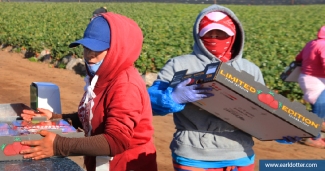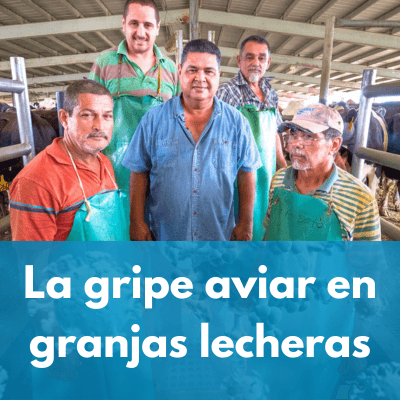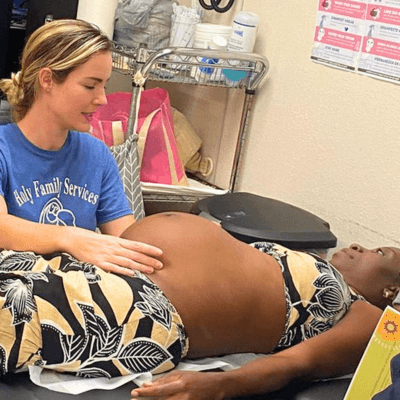Monterey County Medical-Legal Partnership Lays Groundwork for Expanded and Unprecedented Coalition of Agricultural Leaders, Farmworker Advocates, and Clinicians
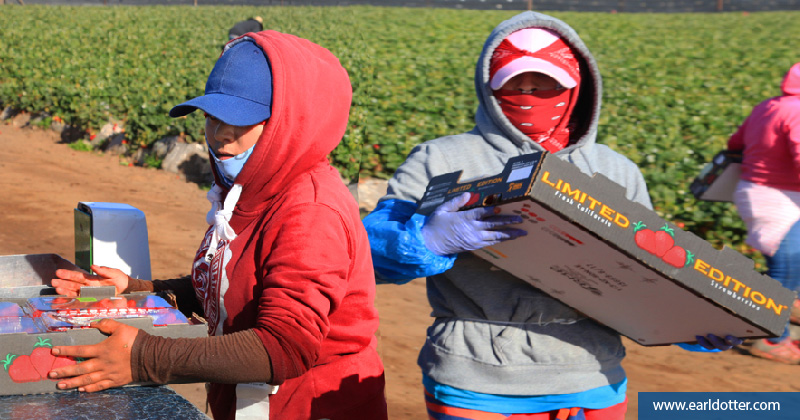
In mid-March, as California’s abrupt COVID-19 shutdown pushed millions to shelter in place, a group of farmworker advocates began to discuss the vulnerabilities of local farmworkers, who were working in the fields as “essential workers” despite the health dangers from the pandemic. The group included academic, legal, and health experts: Pedro Moreno, MD, is a physician for the Alisal Health Center, a community health center in Monterey County that serves the large agricultural community of Salinas – the “Salad Bowl of the World,” and the home of John Steinbeck -- on the Central Coast of California. Aaron Voit, JD, who works with California Rural Legal Assistance, Inc. (CRLA), has an office within Alisal Health Center, allowing for warm handoffs from health providers to Voit for legal support on health concerns like dangerous workplace conditions, through an innovative medical-legal partnership. Both have worked closely with Brenda Eskenazi, PhD, director of University of California, Berkeley’s Center for Environmental Research and Children’s Health which spearheaded CHAMACOS, an internationally renowned study on the effects of pesticides on farmworkers in the Salinas Valley for the last 20 years. Also joining was Hector Parker, PhD, of California State University, Monterey Bay, President of Everyone’s Harvest, a farmers’ market nonprofit organization in Monterey County. All of them have been working together advocating for farmworkers in the Salinas Valley for years.
COVID-19 spelled out inescapable and potentially deadly realities for many farmworkers and their families, from overcrowding in housing and transportation, to lack of health insurance and access to health services, to lack of job protection if infected with COVID-19. Monterey County was among the first counties in the nation to issue an advisory for agricultural worker protection during COVID-19, sponsored by the agricultural commissioner, local elected officials, and agricultural employer organizations, which laid out some meaningful precautions for protecting farmworkers in the fields and packing houses. However, there were no medical, public health, or farmworker advocacy organizations included in the development of that advisory.
“We realized that farmworkers needed a bigger voice,” in the public conversation around COVID-19, said Voit. “Access to health care and access to wraparound services would be more urgent at this time, whether it be unemployment, housing, or health care.”
“When we first looked at the advisory, the first question we had was: why is this an advisory and not mandatory?” questioned Dr. Moreno. “And, there’s no enforcement mechanism,” added Voit. The advocates realized that fighting to impose mandatory safety protocols would take time, and quick action was needed. “So why don’t we get together and discuss it, at least?” Dr. Moreno said. On April 11, agricultural employer groups, leading local physicians and public health experts, and farmworker advocates gathered for the first Monterey County Coalition of Agriculture (MC-COA) meeting to collaborate and discuss ways to improve COVID-19 health and safety measures in farmworker communities. This unprecedented coalition brought traditional adversaries to the virtual table for the first time.
The participants realized they shared many of the same goals. Dr. Moreno says the farmers in attendance asked the clinicians if they could help them; the answer was a resounding ‘yes’. Together, they pinpointed a health priority that was not being addressed: face masks for farmworkers, which were in very short supply by the end of March. Farmworker advocates, clinicians, county health officials, and agriculture businesses signed a letter to the governor asking for more face masks; previous requests from individual organizers had been denied. A few weeks later, the Coalition received 800,000 masks, which coalition members distributed to the farmworker community.
Since that first significant win, the group has met weekly, and the coalition has grown. While all share a common goal – maintaining and bettering the health of farmworkers during the COVID-19 pandemic – the methods to do so and the prioritization of tactics can become points of contention. But the opening of conversation between these different groups is a significant win, says Dr. Moreno.
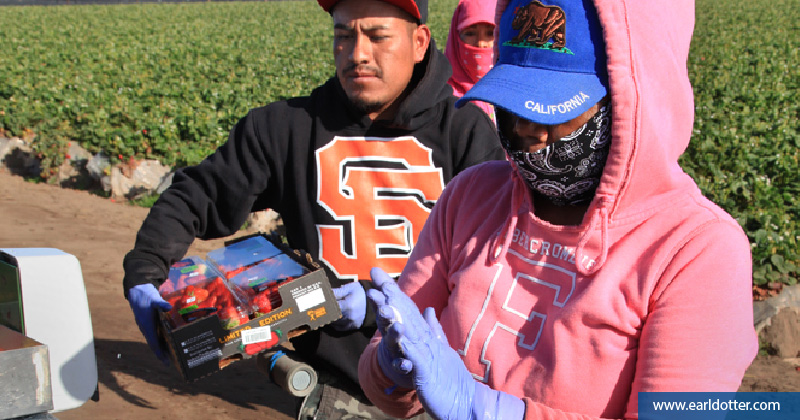
The urgency of the need was further bolstered by the framing of the conversation around promoting COVID-19 health and safety in the farmworker community, a goal that everyone could easily agree on – without immediately delving into some of the broader structural issues associated with farmwork that put these communities at higher risk. This reframing may have opened conversations that, pre-COVID-19, would not have happened between traditional adversaries like farm owners and farmworker advocates.
Dr. Moreno is adamant that the coalition would not have come together so quickly, or perhaps at all, without the foundation of the medical-legal partnership that Voit has built in the last three years. “The medical-legal partnership helped us train our physicians to advocate for our farmworkers,” Dr. Moreno said, by giving clinicians tools to address the underlying determinants of health, like helping a low-income patient connect with the social programs to get food assistance, so he or she has greater access to healthy foods. During the pandemic, clinicians already had a workflow in place to support checking in with patients about food insecurity, COVID-19 income replacement, and other programs for which they might be eligible. This strong partnership enables clinicians to address health needs beyond the exam room, and providing connection to community health-related advocacy.
Voit has also worked closely with Monterey County Health Department on recognizing and addressing social determinants of health, particularly those impacting farmworkers. This laid the groundwork for public health officials to regard them as a critical aspect to farmworker health during COVID-19. This relationship with the health department further laid the groundwork for greater participation in the coalition. Voit says that initial support from Monterey County Health Department Director, Elsa Jimenez, was crucial in bringing this diverse stakeholder group and inspiring participation in good faith: “The Health Department understood from the very beginning that the only way to reduce COVID transmission was for our medical and public health experts, agricultural employers, and farmworker advocates to work together. It was so important that our local public health authority supported this effort and broke down barriers to make it happen. Their participation allows us to work with the latest information and suggest ways to improve our county’s protocols to better protect farmworkers.”
The pandemic is far from over, but both Voit and Dr. Moreno are working in the coalition with future post-COVID-19 collaboration in mind. “I hope that we build enough trust among all of us that after the pandemic ends, we will continue collaborating together to provide health care for farmworkers, especially for those who don't have health insurance – 50 percent of all the farmworkers,” Dr. Moreno expressed, adding that farmers gain valuable help from physicians’ clinical expertise in farmworker health issues, and clinicians and outreach workers in turn have greater access and trust to go into the fields to provide health education and break down barriers to accessing services.
As a clinician, Dr. Moreno added, the coalition has provided an outlet to make a significant impact on the health of his patients in ways that aren’t possible in the exam room. “My role as a physician during a pandemic isn’t just to diagnose COVID-19, but to work with Aaron, and community partners, to advocate for farmworkers affected by COVID-19,” he said. “In this pandemic, we have limited testing capabilities, few medications and we don’t have a vaccine -- so what can a physician do right now?... The best tool I have is to partner with my community to prevent infections with COVID-19 and advocate for services for sick farmworkers with COVID-19.”
“It takes significant time and effort to get a coalition started – to put biases aside and have an open mind, to have understanding and patience to bring people to the table, and to meet them halfway – and our main leaders, Professors Eskenazi and Parker are successfully doing it,” Dr. Moreno added. “We hope that all of us, working in collaboration in our coalition, we will help prevent farmworkers from getting sick with COVID-19. Most importantly, we hope can better assist sick farmworkers with COVID-19 by coordinating our services. As a physician I am humble to recognize that I need my community partners now more than ever. I am thankful to each one of them.”
“We are proud and honored to serve our heroes in this pandemic, our essential farmworkers,” concluded Voit and Dr. Moreno.
Like what you see? Amplify our collective voice with a contribution.
Got some good news to share? Contact us on our social media pages above.
Return to the main blog page or sign up for blog updates here.
- Log in to post comments
